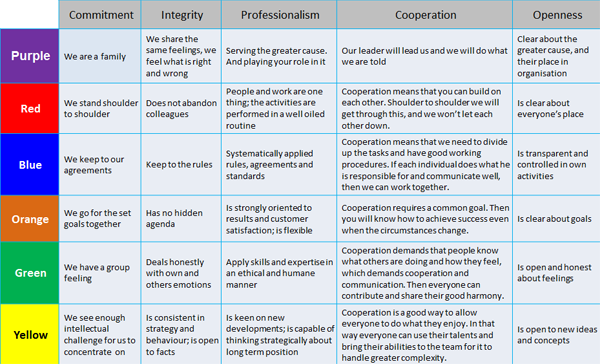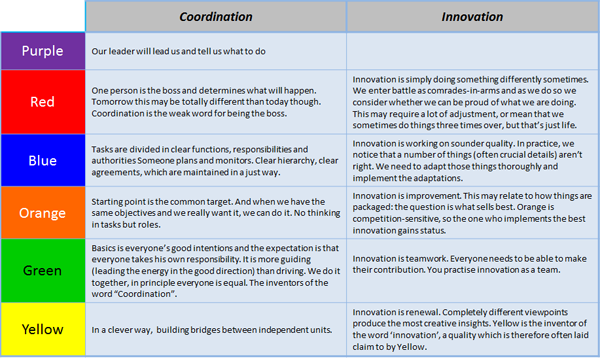ICM provides a complex and sensitive behavioural mapping tool, developed from an academic psychological theory and tailored for practical use in a business context.

Background


Drives, Behaviours and Values.
Each Drive points to a type of behaviour that reflects its world view.
Drives do not describe actual behaviours. How we translate our preference for a type of behaviour into a specific behaviour is both contextual and individual or team.
The context in which people operate, including the group dynamics and our personal histories, will make certain types of behaviour OK, and others not OK, even though the behaviours come from the same Drive.
These translators are sometimes called values. Sometimes the pressure to change is simply the group dynamics, or perhaps the organisation demands certain behaviours to be shown by some people, e.g. behaviours described as ‘customer service’. There may be a large legacy component in how the preference for a certain type of behaviour (Drive) is translated in actual, acceptable collective behaviour or culture for a group.
Culture describes the aggregate of the actual behaviours shown by a group of people, in a range of particular circumstances, and in particular locations. Of course it also reflects the thoughts and feelings that underlie those types of behaviours.
The behaviours, and hence the culture, shown by an individual, Team, State or Nation will be clearly recognisable for that group and its Drive preferences.
A common problem people have is that the meaning given to certain ‘value’ words is very much determined by their Drive preferences. This can lead to considerable confusion and tension. The tables below show examples of these differing perceptions:

.
and.....





